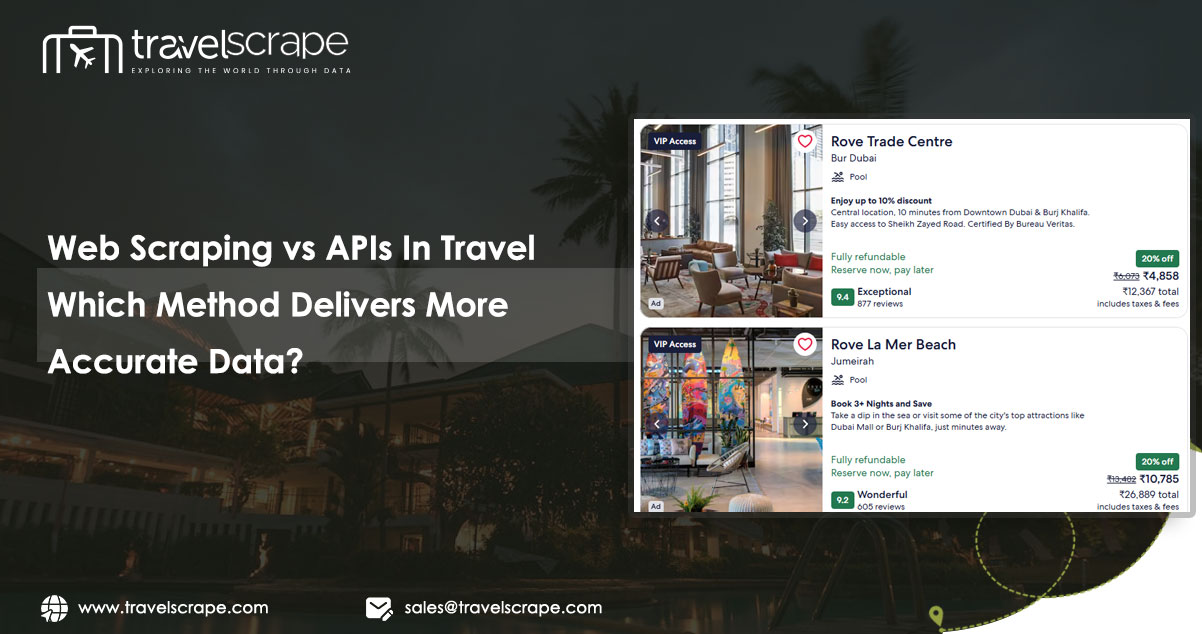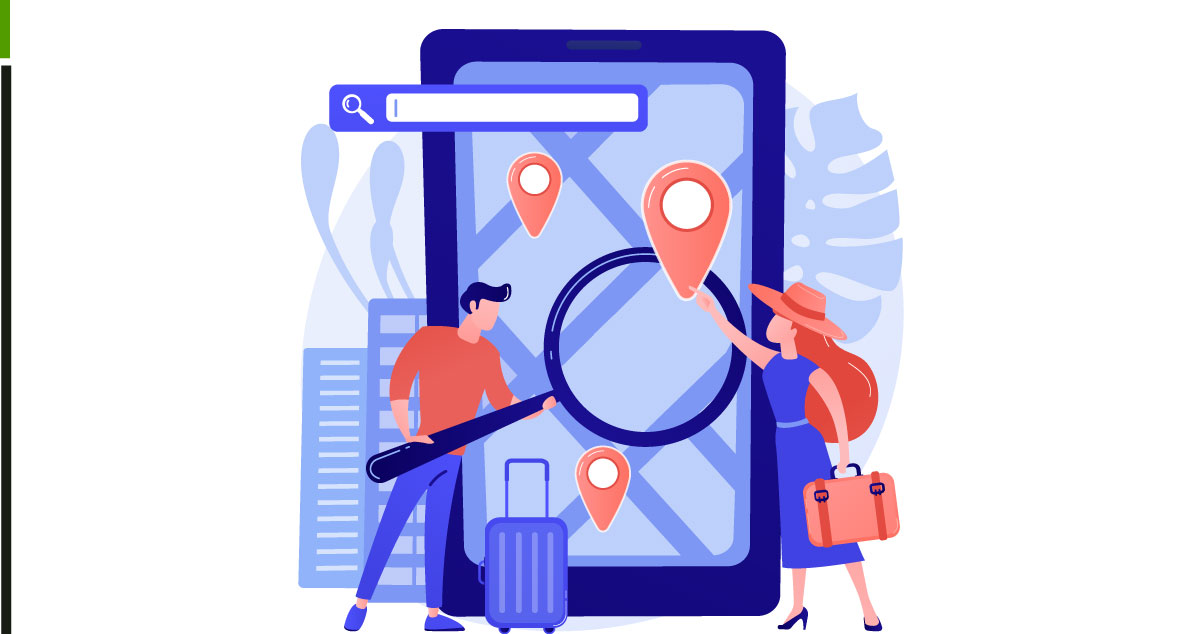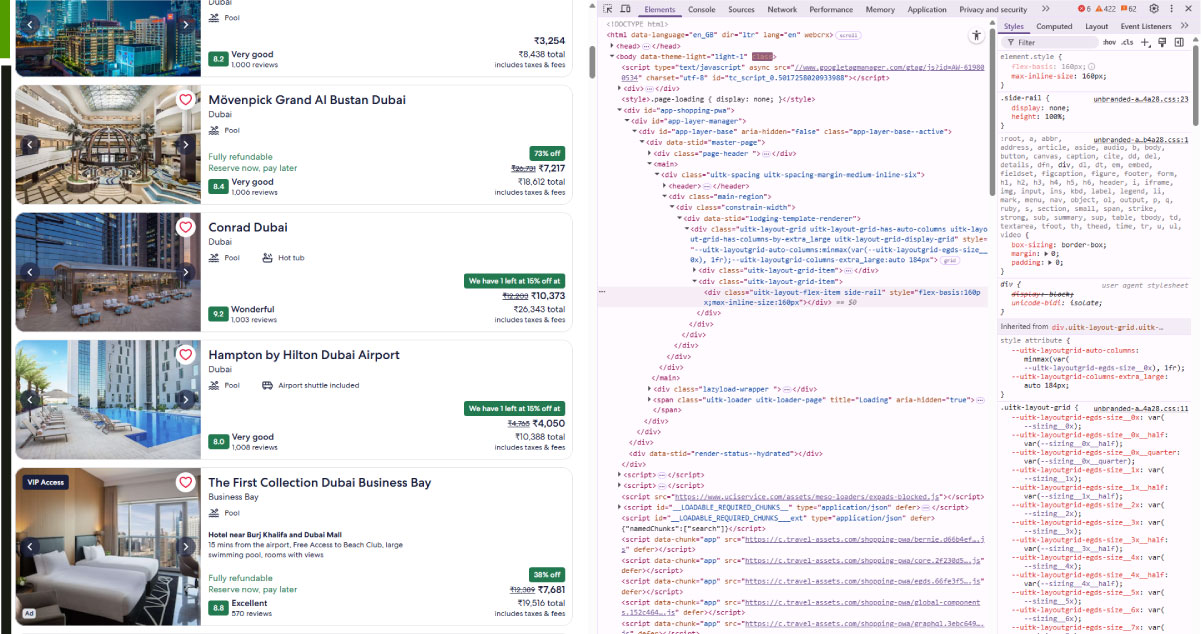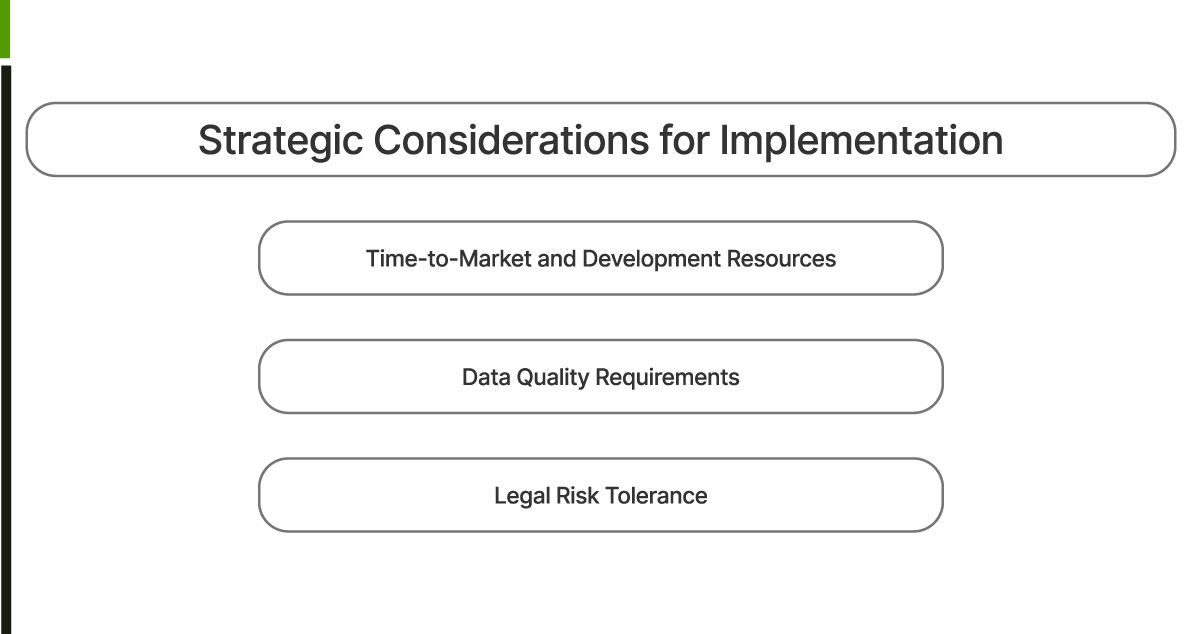Web Scraping vs APIs In Travel Which Method Delivers More Accurate Data?

Introduction
Access to accurate, comprehensive data has become the cornerstone of successful business strategies in today's rapidly evolving travel industry. Whether you're building a price comparison platform, analyzing market trends, or creating personalized travel recommendations, the quality of your data directly impacts your business outcomes. The ongoing debate of Web Scraping vs APIs In Travel centers around a critical question: which approach provides more reliable, comprehensive, and actionable information?
Understanding the Data Landscape in Travel

The travel sector generates massive volumes of constantly changing information – from flight schedules and hotel availability to customer reviews and destination insights. Companies need this data to remain competitive, but acquiring it presents unique challenges.Data Extraction Methods vary significantly in their implementation, reliability, and ethical considerations. On one hand, Web Scraping Travel Data offers flexibility and access to publicly available information across countless websites. On the other hand, an API For Travel Data Extraction provides structured, permissioned access through established protocols.
Before discussing the comparison further, let's clarify what each method entails and how it functions within the travel ecosystem.
What is Web Scraping in the Travel Industry?

Scraping Travel Sites involves automated tools that extract information from travel websites by parsing HTML content. This approach mimics human browsing behavior but at scale, capturing data that would be impractical to collect manually.
The process typically works as follows:
- Identifying target websites containing relevant travel information
- Creating scrapers that navigate these sites and locate specific data points
- Extracting the information into structured formats
- Cleaning and standardizing the collected data
- Integrating it into databases or analytical systems
Real-Time Travel Data Scraping has become increasingly sophisticated, allowing companies to monitor price fluctuations, availability changes, and emerging travel trends as they happen. This approach allows businesses to react quickly to market shifts and consumer behavior patterns.
Understanding Travel APIs
An API For Travel Data is a controlled gateway between different software systems. In the travel industry, APIs enable direct communication between service providers (airlines, hotels, etc.) and third-party applications seeking to access their information.
APIs typically offer:
- Standardized data formats and structures
- Authentication mechanisms ensure only authorized access
- Documentation explaining available endpoints and parameters
- Rate limits and usage policies
- Support for various programming languages
Many major travel companies provide APIs, including global distribution systems (GDS), online travel agencies (OTAs), and individual service providers. These interfaces facilitate Travel Data Integration across platforms while maintaining control over how their information is accessed and used.
Comparing Accuracy and Reliability: A Critical Analysis
When evaluating which approach delivers more accurate data, several factors come into play:
1. Data Freshness and Real-Time Access
Real-Time Travel Data Scraping can provide the most current information on public websites. Since web scrapers can be programmed to run at specified intervals (even continuously), they capture price changes and availability updates immediately after they appear online.
However, APIs often have even more direct access to backend systems. An API For Travel Data Extraction typically connects directly to reservation systems and databases, potentially providing real-time information without the delay of website updates.
| Factor | Web Scraping | APIs |
|---|---|---|
| Update Frequency | Depends on scraping schedule | Often real-time or near real-time |
| Latency | Higher (website must update first) | Lower (direct database access) |
| Consistency | Can vary between scraping runs | Generally consistent |
2. Data Completeness and Depth
The comprehensiveness of data differs significantly between these methods:
Web Scraping Travel Data can access all publicly visible information on travel websites, including details that might not be exposed through official APIs. This could include user reviews, detailed property descriptions, amenities, and competitor pricing information.
In contrast, Travel Web Scraping vs API comparisons often note that APIs provide only the data fields specifically made available by the provider. While this information is typically well-structured and reliable, it may be limited in scope or missing certain elements that aren't included in the API specification.
3. Accuracy and Error Handling
Data accuracy presents another critical dimension in the Web Scraping vs APIs In Travel debate:
APIs generally provide more accurate data because:
- Information comes directly from authoritative source systems.
- Data structures remain consistent.
- Providers validate information before making it available.
- Error-handling mechanisms are built into the protocol.
Scraping Travel Sites introduces more potential points of failure:
- Website layout changes can break scrapers.
- Anti-scraping measures may block access or serve incorrect information.
- Parsing errors can miscategorize or misinterpret data.
- Hidden data elements might be missed entirely.
Challenges and Limitations of Each Approach
Both web scraping and APIs offer valuable paths to access travel data, but each comes with operational, legal, and technical hurdles. Understanding these limitations is essential to selecting the most effective and sustainable solution.
1. Web Scraping Challenges
While the flexibility of using Web Scraping Travel Data can be a significant advantage, the process is not without its hurdles:
- Legal and Ethical Considerations: Many websites explicitly prohibit scraping in their terms of service, creating potential legal exposure.
- Anti-Scraping Measures: Travel sites increasingly implement CAPTCHA, IP blocking, and other techniques to prevent automated scraping.
- Maintenance Requirements: Scrapers require constant updates as websites change their structure and design.
- Scalability Issues: Large-scale scraping operations may require significant computing resources and proxy networks.
Moreover, the reliability of Real-Time Travel Data Scraping can be compromised when websites introduce abrupt structural changes or advanced anti-bot policies, which can disrupt consistency and delay insights critical to decision-making.
2. API Limitations
Using an API For Travel Data may seem like a cleaner and more compliant route, but it has its own set of constraints:
- Limited Data Scope: APIs expose only what providers choose to share, potentially excluding valuable information.
- Cost Considerations: Many comprehensive travel APIs charge significant fees, especially for high-volume usage.
- Dependency Risk: Relying on external APIs creates dependency on third-party systems and their continued operation.
- Integration Complexity: Working with multiple APIs requires handling various authentication methods, data formats, and rate limits.
Coordinating multiple APIs for Travel Data Integration often results in inconsistent update frequencies and schema mismatches, complicating information aggregation and harmonization across platforms.
Strategic Considerations for Implementation

Choosing between Travel Web Scraping vs API approaches requires evaluating several factors:
- Time-to-Market and Development Resources
Building scraping infrastructure typically requires more initial development work, but it offers flexibility to target precisely the data needed. APIs generally provide faster implementation through documented endpoints but may require ongoing subscription costs
- Data Quality Requirements
APIs typically provide more reliable information with more explicit update guarantees for applications where absolute data accuracy is critical (e.g., booking systems). Real-Time Travel Data Scraping might be preferable for market intelligence applications where the breadth of coverage outweighs perfect accuracy.
- Legal Risk Tolerance
Organizations must evaluate their comfort level with the legal gray areas of scraping. While many companies successfully employ Scraping Travel Sites as part of their data strategy, others prefer the permissioned nature of API access.
Hybrid Approaches: The Best of Both Worlds
Many successful travel technology companies implement hybrid strategies combining Data Extraction Methods.
This approach leverages:
- APIs for core transactional data require high reliability.
- Selective scraping for enrichment data is not available through APIs.
- Internal data normalization to create unified data models.
- Verification systems that cross-check information between sources.
These hybrid systems represent sophisticated Custom Travel Data Solutions that maximize coverage and accuracy while mitigating the weaknesses of each approach.
Travel Review Data Intelligence: A Special Case
Travel Review Data Intelligence presents a fascinating use case in this comparison. Consumer reviews provide invaluable insights into traveler preferences and experiences, yet comprehensive review data is rarely available through standard APIs.
Companies seeking to analyze sentiment, identify emerging trends, or develop recommendation systems often use carefully designed scraping operations to collect review content. This approach allows for broader coverage across multiple review platforms, providing more comprehensive Travel Data Intelligence than possible through APIs alone.
The challenge lies in normalizing and standardizing review data across different formats and platforms, a task that requires sophisticated natural language processing and data harmonization techniques.
How Travel Scrape Can Help You?
We understand the complexities involved in acquiring and processing travel data. Our team specializes in developing customized solutions that address the travel industry's unique challenges.
We offer:
- Expert consultation on data acquisition strategies tailored to your specific business needs.
- Advanced Travel Scraping API services that combine reliability with comprehensive coverage.
- Hybrid data solutions integrate multiple sources for maximum accuracy and completeness.
- Scalable infrastructure designed to handle seasonal fluctuations in travel data volumes.
- Compliance-focused approaches that respect legal boundaries while delivering actionable insights.
Our Custom Travel Data Solutions are designed to grow with your business, providing the strategic data advantage needed to thrive in today's competitive travel marketplace.
Whether you need hotel rate intelligence, flight pricing trends, or comprehensive Travel Data Intelligence, our team has the expertise to deliver reliable, actionable information.
Conclusion
The debate around Web Scraping vs APIs In Travel continues to evolve as technology advances and data sources multiply. Rather than viewing these approaches as mutually exclusive, forward-thinking organizations recognize the strategic value of both methods within a comprehensive data strategy.
To stay ahead in today’s dynamic travel ecosystem, businesses are increasingly partnering with specialists with deep expertise in Travel Aggregators. These professionals bring a nuanced understanding of data architecture, compliance requirements, and platform-specific nuances, ensuring the delivery of accurate, real-time insights that fuel smarter decisions.
Unlock new opportunities with precision data. Contact Travel Scrape today to explore how our customized solutions, including Travel Industry Web Scraping, can help you overcome operational challenges and seize strategic advantages. Our dedicated team of travel data experts is equipped to convert complex data streams into clear, actionable intelligence that drives your business forward.